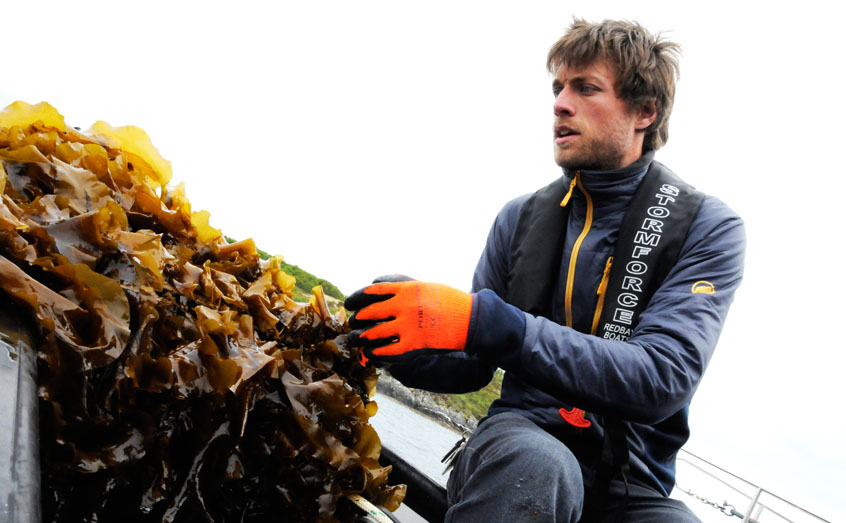SAMS news room
Budding Scottish seaweed industry taking shape

Scotland has taken a step closer to establishing a new seaweed aquaculture industry following a meeting of industry representatives, academics and policy makers in Oban.
SAMS operates two experimental seaweed farms and researchers are helping to lead investigations into viable seaweed cultivation.
Seaweed scientist Dr Adrian MacLeod of SAMS shared some of his findings at the second annual meeting of the Scottish Seaweed Industry Association (SSIA) last week, when he addressed issues relating to seaweed cultivation in Scottish waters.
During the event, delegates also heard about seaweed harvesting, processing, intellectual property, marketing and the value of seaweed to various industries.
Dr MacLeod, one of a number of SAMS representatives at the conference, said: “Through our research we hope to overcome barriers to making seaweed cultivation an economically viable option.
“We are increasing our knowledge all the time and are working with partners throughout Europe.
“There is still a lot of research and development to be done but I think a seaweed cultivation industry for Scotland is a very realistic prospect in the coming years.
“There are huge improvements we can make to the cultivation systems by better understanding the biology of the algae and the conditions in which it grows, as well as automating the process.
“The crucial decision will come from the people who sell the seaweed as a product and know a suitable price for the market.”
Walter Speirs, chairman of the SSIA said a doubling of the association’s membership in the past year was a sign that the budding industry was taking shape.
The former mussel farmer drew comparisons with the emerging shellfish industry in the 1980s and called for ‘pioneers’ to help the seaweed industry gain a foothold in the aquaculture sector.
He added: “The development of the industry is uncannily like the shellfish growers organisation years ago. I started in the shellfish industry in 1985 and there was a lot of pioneering and unproven work going on. Some people were sceptical and laughed at our efforts to grow mussels but it grew into a large industry.
“The same can apply to the seaweed industry; people in this part of the world ate seaweed as part of a natural diet but we lost it over the years. Now seaweed is coming back as a pharmaceutical and cosmetic, as well as a food.
“The seaweed industry is a new idea, but it will happen as long as we have the pioneers. These are the people who will take a risk and plough that single track. Other people will come along the track and make it wider, as our knowledge increases.”
Dr Greg Moschonas, a former PhD student at SAMS, is now Argyll and Bute Council’s economic growth officer for food and drink and marine science.
Speaking after the conference, he said: “We want Argyll and Bute to be ready to become a hub for the industry in the future, but that will depend on the demand for seaweed.
“If the demand is there, we need to make sure we have the infrastructure and support in place for when the industry is ready to kick off.
“I think there is a lot of potential in Argyll and Bute for seaweed cultivation, especially when it comes to food. The pristine waters on the west coast of Scotland present an ideal location for seaweed cultivation and having a marine science institute like SAMS based here will also be a great resource for the industry.”
